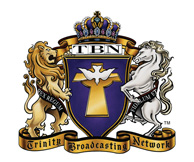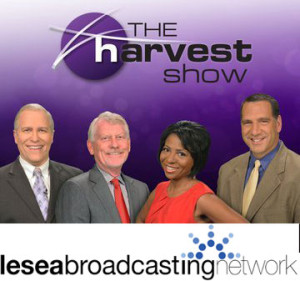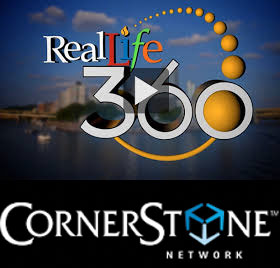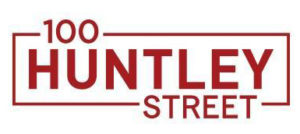Jesus never established a Kingdom on earth. At least, not the way His followers expected He would. For all His talk, His walk, and His amazing miracles, they had little practical proof of prophetic phrases Christ linked to Himself. From a crowd of seekers to crucifixion by public opinion. From water into wine to a bloody death. His closest friends dropped into doubt as their dreams dashed. Wasn’t Christ supposed to be seated on David’s throne? Had their three years of missionary service done anything at all?
Peter, as usual, got things rolling. However his friends felt, he decided to move on. And, as usual, he made his decision public: “I’m going fishing.” Others joined him. They climbed back into a boat to fish, sitting in the setting where Jesus had found them before. With tarnished dreams, they returned to their lives before Christ. They went fishing.
Watching multitudes dwindle down to just a few discouraged the disciples. It challenged their plan to change the world. Their own cowardice showed during the days of Christ’s death. It shook their beliefs. Tired of risks, they launched in a boat driven by goals easily attainable and measurable.
More was happening though. Christ’s death had not ended the story. A weekend of pain ended with an empty tomb, beginning a season inviting everyone everywhere to receive love from Jesus. He revealed Himself to a few—never notifying them in advance of His arrival. He talked to Peter about the future, talked to Thomas about doubt, and talked to all His followers about why He must leave again.
But He didn’t give specific details.
I like specific details, advance notice, clear guidance, and precise goals to achieve. Jesus chose to voice a general agenda—like love one another, wait, receive the Spirit, and tell the story.
He still seems to lead that way.
And, amid crucial times to achieve aspirations, He waits for us. With our boats running and our goals listed, He waits for us. Cooking us breakfast.
That’s what happened for His early followers.
The disciples—or, for now, the fishermen—had worked through the night but caught nothing. Jesus waited ashore and spoke, possibly making the apparent disaster of the disciples worse. He advised them on a better fishing technique. Remember, they’d been there a while. They’d tried it all and they had been fishermen for years. They probably didn’t want an outsider’s advice.
Jesus told them to try the right side. They proceeded without hesitation. They still did not know the Lord’s identity, but maybe eager Peter learned a lesson the first time Jesus directed them to a large catch. Maybe he figured it was worth a shot. So, they lowered their net, following the Stranger’s guidelines. The shifted net suddenly filled with fish.
They could not bring in the net because of captured quantity. They didn’t need to make up a story about a miracle at sea. What a great illustration of Christ’s power, His wisdom, His guidance, His awareness. Utilizing years of education and experience, the efforts of men brought nothing. When their work followed the advice of Jesus, success was immediate.
I often see how we abandon our ideals and return to the roles we are most comfortable with. The preaching, healing, and traveling may have seemed too much for the less-than-perfect disciples. Fishing posed no problems. They knew technique; they felt confident about their abilities.
Can’t we all relate?
To encourage them to fulfill the call, Jesus did not rebuke them. Through an amazing miracle He revealed His power. He opted for showing Himself to them rather than shoving Himself on them. Not volume. Not marketing. Harsh words might have added to their despair. The miracle, reminiscent of the similar episode so long before, taught the lesson.
Stare at John’s words: “It is the Lord!” His spoken excitement compelled Simon Peter to act. With no desire to conceal his enthusiasm, Peter wrapped his outer garment, dove into the water and traveled the hundred yards like an Olympic swimmer. Peter forgot the fish. His mind was on Jesus. He let the coworkers row in the harvest. He rushed to see his friend. When the boat arrived, Peter reached to drag ashore the net bulging with proof of Christ’s promise.
It really was the Lord. They saw Him. He was there. Alive and with them. Peter’s eager plunge showed a longing to be with the Savior. Jesus gladly gave him that opportunity.
On the shore they found coals warm and bread ready. They gazed at their Host and knew, for certain, Jesus had invited them to eat. He gave them what they thought they needed: a catch of fish. But He gave it on His terms, not theirs.
He gave them what their bodies needed: food. He prepared it. He served it. Even more crucial, He gave them what they truly needed in the deepest place of their lives: He gave them Himself.
Jesus offered not even a small rebuke. A Chef on the verge of clarifying Peter’s pastoral commission, He shared Himself. A ministry that began in an encounter with men fishing took its realignment to that familiar bargaining table. The staff felt like giving up, like quitting. Their CEO crashed their pity-party and loved them.
All of us are tempted to retreat to safe, secure, more familiar places when initial thrills wane. When we feel too many prayers remain unanswered and too much effort goes unnoticed, we glance around in search of a way out. When pressures of ministry push us to the brink of burn out, we settle for a more comfortable to the flesh, less demanding or challenging role.
The Holy Observer watches us when we sail the boats of resignation. Whether we intend to back off permanently or just in moments of uncertainty, He watches our every move. He knows our every motive. And He loves us.
That’s what Jesus does. He shows up. He glances from the shore as we labor in our efforts to escape. He comes to host us at the breakfast table. He meets us right where we are, even in our weakest moments.
His table waits. The Host has invited us who are still in our boats to ride ashore, or dive in and swim to Him.
He says, “Let’s eat.”
*From the book Pause With Jesus: Encountering His Story in Everyday Life









